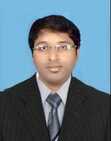5-The words and writers who changed the world.- Francis Bacon
The human understanding is like a false mirror, which, receiving rays irregularly distorts and discolours the nature of things by mingling its own nature with it.
Francis Bacon was the first great philosopher to write in the English Language. For centuries, Latin was the language of the intellectual elite. The theories and assumptions of the classical age were considered the farthest limits of man’s proper knowledge. Bacon flouted this accepted wisdom and insisted we could reveal facts about the natural world through experiment and inquiry, rather than relying on existing authorities. He is rightly considered a pioneer of the scientific method and the Age of Reason.
Bacon’s work extends beyond the realms of science and philosophy. He is considered the first English essayist. His wonderfully epigrammatic prose combines the logic with the worldly of an experienced statesman.
Some of his best works:
Studies serve for delight, for ornament, and for ability. Their chief use for delight is in privateness and retiring; for ornament, is in discourse; and for ability, is in the judgment and disposition of business. For expert men can execute, and perhaps judge of particulars, one by one; but the general counsels, and the plots and marshalling of affairs, come best from those that are
learned. To spend too much time in studies is sloth; to use them too much for ornament is affectation; to make judgment wholly by their rules is the humor of a scholar. They perfect nature and are perfected by experience; for natural abilities are like natural plants that need pruning by study; and studies themselves do give forth directions too much at large, except they be bounded in by experience. Crafty men condemn studies; simple men admire them; and wise men use them: For they teach not their own use; but that is a wisdom without them and above them, won by observation. Read not to contradict and confute; nor to believe and take for granted; nor to find talk and discourse; but to weigh and consider. Some books are to be tasted, others to be swallowed, and some few to be chewed and digested: That is, some books are to be read only in parts; others to be read, but not curiously; and some few to be read wholly, and with diligence and attention. Some books also may be read by deputy, and
extracts made of them by others; but that would be only in the less important arguments, and the meaner sort of books; else distilled books are like common distilled waters, flashy things. Reading maketh a full man; conference a ready man; and writing an exact man. And therefore, if a man write little, he had need have a great memory; if he confer little, he had need have a present wit; and if he read little, he had need have much cunning, to seem to know that he doth not. Histories make men wise; poets witty; the mathematics subtle; natural philosophy deep; moral grave; logic and rhetoric able to contend. Abeunt studia in mores. Nay, there is no stond or impediment in the wit but may be wrought out by fit studies: like as diseases of the body may have appropriate exercises. Bowling is good for the stone and reins; shooting for the lungs and breast; gentle walking for the stomach; riding for the head; and the like. So if a man’s wit be wandering, let him study the mathematics; for in demonstrations, if his wit be called away never so little, he must begin again: If his wit be not apt to distinguishor find differences, let him study the Schoolmen; for they are cymini sectores: If he be not apt to beat over matters, and to call one thing to prove and illustrate another, let him study the lawyers’ cases; so every defect of the mind may have a special receipt.



